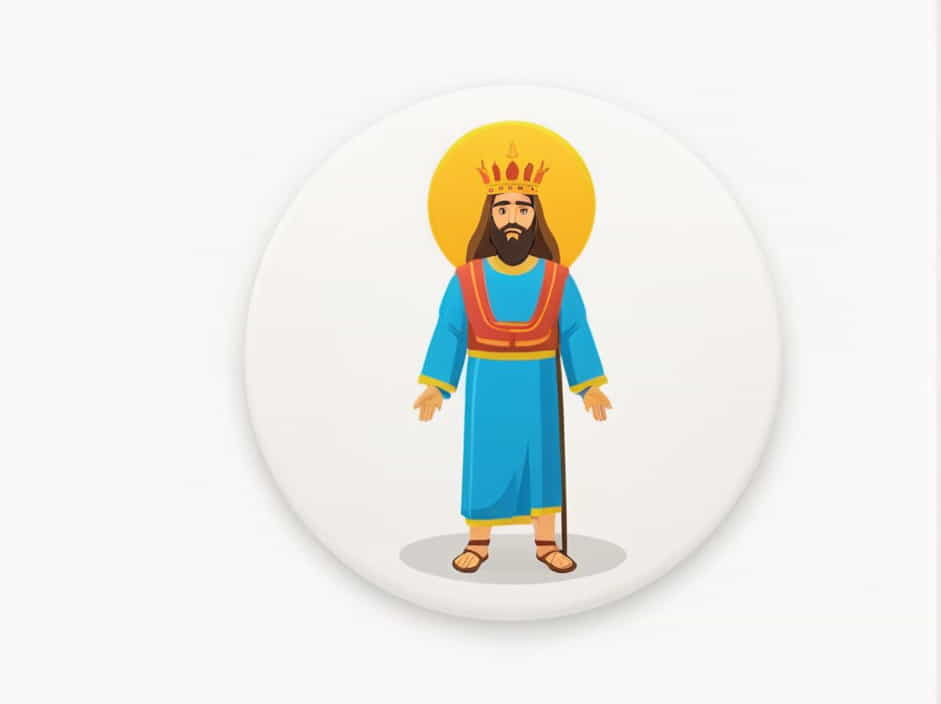Jephthah is one of the most intriguing and tragic figures in the Bible, specifically in the Book of Judges. His story is a blend of faith, leadership, and a tragic vow that led to one of the most heartbreaking moments in Scripture.
This topic explores Jephthah’s background, his role as a judge of Israel, his battle against the Ammonites, and the consequences of his vow.
Who Was Jephthah?
Jephthah was a mighty warrior but came from a difficult background.
1. His Family and Rejection
- Judges 11:1-2 – Jephthah was the son of Gilead and a prostitute. Because of his illegitimate birth, his half-brothers drove him away, denying him any inheritance.
- He fled to the land of Tob, where he gathered a band of outcasts and became a skilled fighter and leader.
This early rejection shaped Jephthah’s life, but it also prepared him for the leadership role he would later assume.
Jephthah Becomes a Leader
1. The Call to Lead Israel
- When the Ammonites attacked Israel, the elders of Gilead sought Jephthah’s help, recognizing his military skill.
- Judges 11:6 – They said to him, “Come, be our commander, so we can fight the Ammonites.”
At first, Jephthah reminded them of how they had previously rejected him, but he agreed to lead if they made him their ruler after the victory. The elders accepted, and he became the leader of Gilead.
2. Jephthah’s Negotiation with the Ammonites
Before resorting to war, Jephthah attempted to resolve the conflict through diplomacy.
- Judges 11:14-27 – He sent messages to the Ammonite king, explaining that Israel had not taken their land but had won it in a fair battle centuries earlier.
- However, the Ammonites refused to listen, leading to war.
Jephthah’s Tragic Vow
1. The Rash Promise
Before going into battle, Jephthah made a vow to God:
- Judges 11:30-31 – “If you give the Ammonites into my hands, whatever comes out of the door of my house to meet me when I return in triumph will be the Lord’s, and I will sacrifice it as a burnt offering.”
This vow would prove to be his greatest mistake.
2. Victory Over the Ammonites
- Judges 11:32-33 – With God’s help, Jephthah defeated the Ammonites and secured Israel’s freedom.
- His leadership brought relief to the people, but his joy was short-lived.
3. The Heartbreaking Fulfillment of His Vow
- When Jephthah returned home, his only daughter was the first to greet him.
- Judges 11:34-35 – “When he saw her, he tore his clothes and cried, ‘Oh no, my daughter! You have brought me down and I am devastated. I have made a vow to the Lord that I cannot break.’”
His daughter, understanding the seriousness of the vow, accepted her fate.
- Judges 11:37-38 – She asked for two months to mourn her fate, as she would never marry or have children.
- After this time, Jephthah fulfilled his vow.
Did Jephthah Sacrifice His Daughter?
Scholars debate whether Jephthah actually performed a human sacrifice, which was against God’s law, or if his daughter was instead dedicated to lifelong service at the tabernacle.
1. Arguments for a Literal Sacrifice
- The text states that Jephthah “did to her as he had vowed” (Judges 11:39).
- The phrase “burnt offering” typically refers to an actual sacrifice.
2. Arguments for a Symbolic Sacrifice
- Human sacrifice was strictly forbidden in Deuteronomy 12:31.
- Judges 11:39 emphasizes that she never married, which suggests she may have been devoted to serving God in purity rather than being killed.
Regardless of interpretation, the story remains a tragic lesson about making rash vows.
Jephthah’s Conflict with Ephraim
After defeating the Ammonites, Jephthah faced a new challenge—conflict with the tribe of Ephraim.
- Judges 12:1 – The Ephraimites were angry that they had not been invited to fight and threatened Jephthah.
- Jephthah fought against Ephraim and won, but this led to internal strife among the Israelites.
This highlights a recurring issue in the Book of Judges—division among the tribes of Israel.
Jephthah’s Legacy and Death
- Jephthah judged Israel for six years (Judges 12:7).
- He is later mentioned in Hebrews 11:32, listed among the heroes of faith, despite his tragic story.
His life teaches us several lessons about leadership, faith, and the dangers of making rash promises.
Lessons from Jephthah’s Story
1. God Uses the Rejected
Jephthah was an outcast, yet God raised him up to deliver Israel. This reminds us that God can use anyone for His purpose, regardless of their past.
2. Be Careful with Your Words
Jephthah’s vow brought him great sorrow. The Bible warns us:
- Ecclesiastes 5:2 – “Do not be quick with your mouth, do not be hasty in your heart to utter anything before God.”
This teaches us the importance of thinking before making promises we cannot keep.
3. Faith and Obedience Are More Important Than Vows
Jesus later taught that it is better to let our “yes” be yes and our “no” be no (Matthew 5:37). Instead of making vows, we should focus on trusting and obeying God.
The story of Jephthah is both inspiring and tragic. He rose from rejection to leadership, won a great victory for Israel, but suffered the consequences of a rash vow.
His life reminds us to trust in God’s power, be careful with our words, and seek His wisdom in all decisions.
